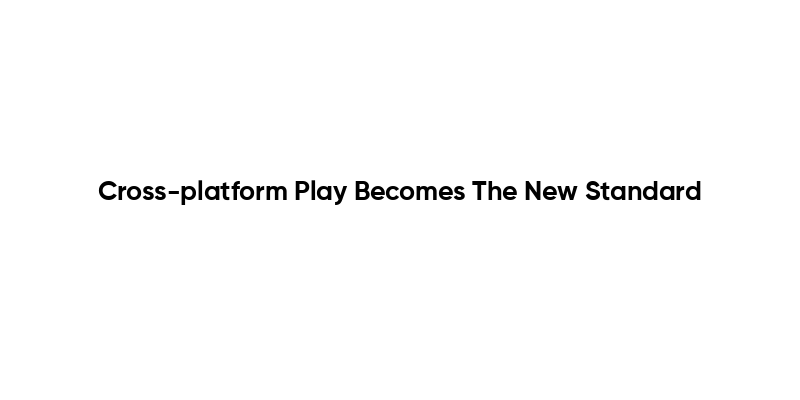Unity financial results for the first quarter of 2025 have recently been released, showcasing a complex landscape for the company. The report indicated a revenue decline of 8% in Unity’s Create Solutions segment and a 4% decrease in the Grow Solutions segment, raising questions about the current state of its offerings. This contraction has been attributed to a drop in professional services and consumption revenue due to a portfolio reset, yet strong growth in subscription revenue has provided some cushion. Interestingly, Unity reported that its latest platform, Unity Vector, played a pivotal role in mitigating losses, highlighting an earlier-than-expected rollout. Overall, the financial results, with a total revenue of $435 million, reveal both challenges and promising opportunities amidst an evolving gaming industry landscape.
The latest financial disclosures from Unity spotlight the company’s performance in fiscal Q1 2025, marked by notable shifts in its business segments. Specifically, there has been an 8% downturn in revenue from its Create Solutions, attributed largely to changing market dynamics and a strategic portfolio adjustment. Meanwhile, the Grow Solutions area experienced a 4% revenue decline, driven by a dip in selected products, although the advent of Unity Vector has introduced a favorable change. Despite these challenges, Unity 6 has been a bright spot, achieving strong download numbers and transitioning users smoothly to its latest capabilities. These financial shifts underscore an active adaptation process within Unity as it navigates a competitive landscape enriched by innovation.
Unity Financial Results Overview
Unity has announced its financial results for the first quarter of fiscal year 2025, revealing a total revenue of $435 million, which is a decline of 6% compared to the same period last year. The company noted a significant decrease of 8% in its Create Solutions revenue and a 4% drop in its Grow Solutions revenue. The decrease in Create Solutions has been primarily attributed to a reduction in professional services and consumption services revenue due to a portfolio reset. Despite this downturn, Unity has seen a strong performance in subscription revenues, effectively mitigating some of the losses.
While the overall revenue reflects challenges in certain segments, Unity’s strategic focus on innovation has helped maintain investor confidence. The company’s results exceeded projections, surpassing revenue forecasts by 5% and adjusted EBITDA expectations by 29%. This indicates a resilient operational capacity, particularly given the competitive landscape of the gaming industry. Unity’s strong fundamentals underscore the potential for recovery and growth moving forward.
Challenges in Create Solutions Segment
In the Create Solutions segment, Unity’s revenue fell to $150 million, marking an 8% decline year-over-year. The company has attributed this decline mainly to a significant reduction in professional and consumption services, which were impacted as a result of internal portfolio adjustments. As Unity shifts its focus, the reduced demand for specific offerings has led to this revenue contraction, prompting the company to explore new avenues for growth.
Amidst these challenges, Unity has not only been addressing the decline but also seeking new innovations that could invigorate the Create Solutions segment. The introduction of Unity 6 has been a noteworthy highlight, capturing over 4.4 million downloads and becoming the most stable version to date. The company is banking on the growth of this platform to offset losses and increase market share as more developers transition to Unity 6.
Unity Grow Solutions Performance
Unity’s Grow Solutions revenue has also seen a decline of 4%, totaling $285 million in Q1 2025. This downturn can be traced back to decreased sales across select Grow products. However, the company highlighted that the adverse effects of this decline were partially mitigated by the early implementation of Unity Vector, its innovative ad services platform. This highlights how Unity is restructuring its product offerings to combat revenue losses in a competitive landscape.
The rollout of Unity Vector marks a significant evolution for Unity’s Grow Solutions. By migrating its ad network to this new AI-driven platform, Unity aims to leverage real-time data analytics to enhance ad performance and customer engagement. As developers navigate the increasingly competitive mobile marketplace, Unity Vector is poised to provide tools that empower growth across its ecosystem, signaling a strategic pivot to bolster revenue streams.
Unity Vector Rollout Success
The celebrated rollout of Unity Vector has been positively received, being completed ahead of schedule. This transition signifies a crucial milestone for Unity as it integrates advanced AI capabilities into its advertising platform. By enhancing the functionality of the Unity Ad Network for iOS and Android, the company aims to offer unparalleled support for developers seeking to maximize their revenue potential in a rapidly evolving market.
Unity has emphasized the importance of Unity Vector in its growth strategy, particularly as mobile gaming continues to expand. This innovative platform harnesses self-learning models that adapt in real-time, which can lead to improved customer experiences and greater monetization opportunities for developers. The early success and rapid adoption of Unity Vector showcase Unity’s commitment to providing cutting-edge solutions that meet the needs of modern game developers.
Unity 6: The Latest Innovation
Unity 6 has emerged as a substantial player in the game development landscape, capturing attention with over 4.4 million downloads since its launch. This latest version of Unity is promoted for being the ‘most stable and performant version,’ indicating significant advancements that appeal to both seasoned developers and newcomers alike. The transition of 43% of active users to Unity 6 demonstrates a robust acceptance and reliance on this platform for current game development needs.
The solid uptake of Unity 6 not only showcases Unity’s innovative capabilities but also provides a competitive edge, especially given that all nine winning titles at the Independent Gaming Festival Awards were built using this version. Unity is positioned to attract new developers by delivering a reliable and powerful toolset, reinforcing its status as an industry leader dedicated to superior quality and performance.
Recognition and Awards for Unity Titles
Unity has achieved notable recognition within the game development community, underscoring its commitment to fostering talent and creativity. In the 2025 Independent Gaming Festival Awards, all nine award-winning titles were created using Unity, highlighting the platform’s superiority in supporting game developers. Such achievements not only bolster Unity’s reputation but also reinforce the connection between innovative technology and creative success.
Furthermore, accolades such as the BAFTA Awards for titles developed with Unity, like Neva by Nomada Studio, serve as a testament to the skill and ingenuity of the company’s user base. These successes demonstrate the depth of talent within the Unity community and present the platform as the go-to choice for developers aiming to create compelling and award-winning games.
Future Outlook for Unity Financials
As Unity navigates the challenges presented in Q1 2025, stakeholders remain optimistic about the future outlook for the company’s financial performance. Unity’s strategic investments in developing Unity Vector and promoting Unity 6 are expected to contribute positively to subsequent quarters. These initiatives are aimed at enhancing user engagement and expanding revenue channels, paving the way for potential recovery in the Create and Grow Solutions segments.
Analysts are closely watching how Unity continues to execute its growth strategies, particularly as the market landscape evolves. The company’s robust performance against expectations indicates strong operational resilience. Unity’s leadership has expressed confidence in their direction and ability to meet future challenges, projecting that their innovative solutions will ultimately lead to financial stabilization and growth.
Unity’s Commitment to Innovation
Unity’s focus on innovation remains at the forefront of its operational strategy. The company is committed to continuously improving its platform and solutions, as evidenced by the advancements seen in Unity 6 and the establishment of Unity Vector. This emphasis on innovation not only serves to retain current users but also attracts new developers looking for cutting-edge tools to enhance their projects.
Moreover, Unity’s engagement with its community and dedication to meeting the changing needs of modern developers signify a long-term strategic vision. By investing in new technologies and adapting to market trends, Unity positions itself as a forward-thinking leader in the gaming industry, underpinning its commitment to fostering growth and creativity among developers.
Navigating Market Challenges
Unity’s financial results for Q1 2025 reflect not only successes but also the mounting challenges faced in a competitive marketplace. The economic landscape for technology and gaming has grown increasingly complex, requiring agility and responsiveness from companies like Unity. As the company adjusts its strategies, it must focus on balancing revenue generation while supporting its community through ongoing innovations.
Unity is acutely aware of the necessity to navigate these market challenges effectively. By leveraging emerging technologies and reinforcing its core platforms, Unity aims to build a reliable business model that can withstand volatility. This approach will be critical as the gaming industry continues to evolve and consumer expectations shift.
Frequently Asked Questions
What were Unity’s financial results for Q1 2025?
In the first quarter of fiscal year 2025, Unity reported a revenue of $435 million, reflecting a decline of 6% year-over-year. The Create Solutions segment saw a revenue drop of 8% to $150 million, while Grow Solutions experienced a 4% decline, totaling $285 million in revenue.
How did the Unity Q1 2025 revenue compare to previous quarters?
Unity’s Q1 2025 revenue declined by 6% year-on-year, but it exceeded expectations by surpassing the high end of the revenue guidance by 5% and the adjusted EBITDA by 29%. This performance showcases Unity’s resilience despite challenges in the Create Solutions and Grow Solutions segments.
What factors contributed to the decline in Unity’s Create Solutions revenue?
The decline in Unity’s Create Solutions revenue is attributed to reduced professional services and consumption services revenue, which were impacted by a portfolio reset. Although there was an overall drop, strong growth in subscription revenue partially offset these losses.
What is Unity Vector and how did it affect Unity’s financial results?
Unity Vector is the company’s new AI platform that enhances its ad network’s performance. The successful and early rollout of Unity Vector contributed to the overall stability and slight mitigation of revenue decline in the Grow Solutions segment.
How successful has the Unity 6 version been since its launch?
Unity 6, referred to by the company as the most stable version, has achieved remarkable success with over 4.4 million downloads since its release. Notably, 43% of active users have transitioned to this version, indicating strong demand and satisfaction among developers.
What recognition has Unity received related to its gaming development ecosystem in 2025?
In 2025, Unity’s ecosystem received significant accolades, as all nine game categories at the Independent Gaming Festival Awards featured titles developed with Unity. Additionally, two titles created using Unity won BAFTA Awards, highlighting the platform’s influence in fostering creative talent.
What is the outlook for Unity following Q1 2025 results?
Despite the revenue decline, Unity’s leadership expressed confidence in their ongoing progress, citing strong demand for Unity 6 and the early success of Unity Vector. The company aims to maintain a culture of execution and discipline to navigate challenges while supporting developers throughout their game development lifecycle.
| Category | Value | Year-on-Year Change |
|---|---|---|
| Total Revenue | $435 million | Down 6% year-on-year. |
| Create Solutions Revenue | $150 million | Down 8% year-on-year. |
| Grow Solutions Revenue | $285 million | Down 4% year-on-year. |
| Net Loss | $78 million | Loss margin of 18%. |
| Unity 6 Downloads | 4.4 million | N/A |
| Awards Won at IGF 2025 | 9 awards | N/A |
| BAFTA Award Winners | 2 titles | N/A |
| Unity Vector Rollout | Completed ahead of schedule | N/A |
Summary
Unity financial results for the first quarter of the 2025 fiscal year reveal a mixed performance, characterized by declining revenues across its main segments but strong growth in subscription services and innovative product launches. Despite an overall revenue drop of 6%, Unity’s ability to surpass expectations in adjusted EBITDA signifies resilience in its business strategy. The launch of Unity Vector ahead of schedule and the impressive performance of Unity 6 illustrate the company’s commitment to supporting developers. These results position Unity as a prominent player in the competitive landscape of game development and technology.



